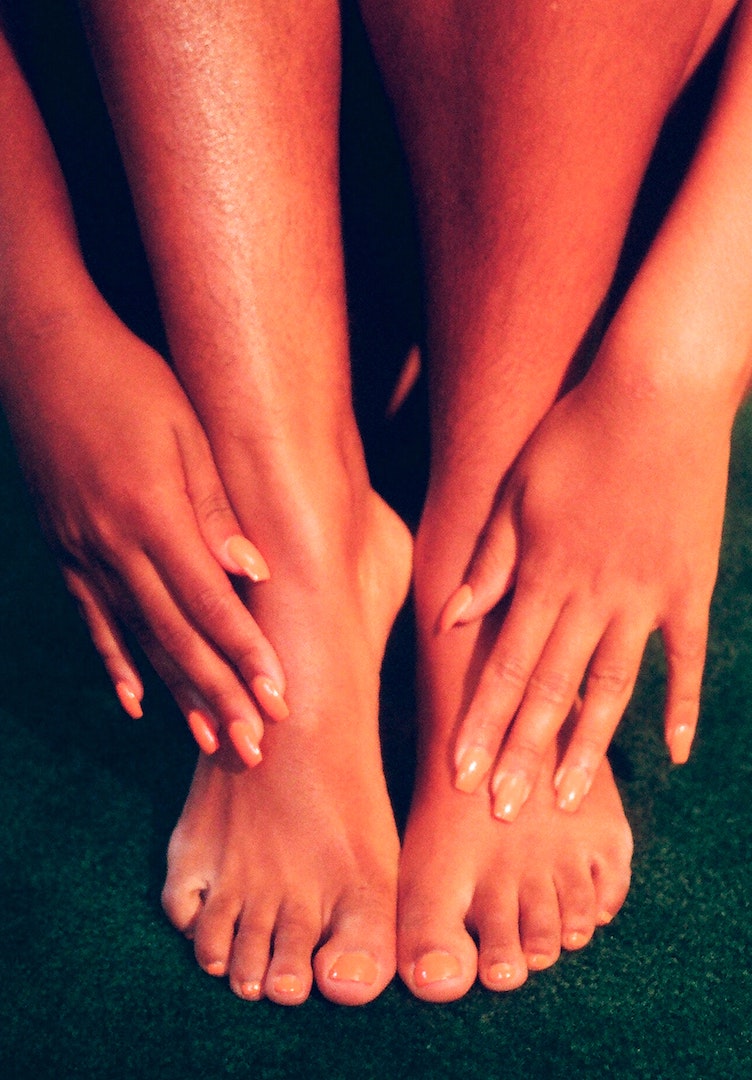A sex coach’s advice on how to unlearn sexual shame
Words by Evangeline Polymeneas
The shame game.
Shame is often not discussed for the sole reason that it’s, you know, shameful. There are so many different things that could cause someone to be ashamed (my outfit choices during the early 2010s being one of the highest on my list). But having sexual shame isn’t something people tend to discuss at the water cooler on a Monday morning so if you find yourself navigating it, it can be quite isolating.
To shed some light on the matter I recruited Australian sex coach Georgia Grace, who regularly deals with issues of sexual shame in her practice. “Where guilt is around something that you’ve done, shame is around how you feel you are or how you know yourself to be. And, like any feeling, it can have a real physical sensation or presence in the body,” Georgia tells me.
For more sex advice, head on over to our Life section.
Those who feel ashamed of the way they look, for example, can be physically repulsed by their body and feel nauseous at just the thought of it. Body shame can occur for a whole host of reasons, but the experience of growing up in a patriarchal culture – which tells us how we should and shouldn’t look – is a common culprit.
Those who’ve experienced homophobia can feel ashamed if they act on their sexual desires, because they’ve been taught that what they desire is wrong. “There are layers of shame that become a part of their identity that are a result of the fact that for many years it has been unsafe or dangerous to be openly discussing who they are or their sexuality,” Georgia tells me.
“[Shame is] informed by the limited sex-ed or limited access to positive spaces to talk to people or safe places to talk to people. It could be about religious teachings, if you’ve grown up in a really religious household where they say that sex beyond procreation between a cis man and a cis woman is wrong. There is still a culture of taboo around sex and relationships and that can feel really confusing for people.”
So what can we do about it?
Shame can come from anywhere. Sometimes it’s loud and overwhelming, but it also comes quietly through microaggressions that can be persistent and impactful. Either way, sexual shame isn’t productive and working towards unlearning it is beneficial to leading not just a positive sex life but a more enjoyable life in general. So how do you do that? According to Georgia, it all starts with asking questions.
“The first thing is identifying the shame, see how it shows up and get curious about that. That could be asking questions like ‘What is my body trying to tell me right now?’, ‘why am I feeling these emotions?’, ‘what is this shame trying to communicate?’, ‘is there a purpose that it may be serving?’, ‘how might it have helped me in the past?’, ‘is it still useful for me, or is there something that I want to reshape or rewire in this feeling or response that I’m having?’.”
Once you’ve identified what’s causing your shame and why, it’s time to rewrite the narrative. “Think – what purpose did it serve for me in the past and is there a new approach I could take? Is there a more kind or loving approach that I can start to have for myself now?”.
As Georgia explains, this is where the concept of neuroplasticity is key. Basically, neuroplasticity comes into play anytime you engage in new behaviours, habits, thoughts or processes which allow your mind and body to rewire themselves. “That’s why [I] love working with sex-positive affirmations or thinking, ‘Oh okay, that’s a shame thought, I’m going to acknowledge it, but right now I’m going to choose to think about something else so I can start to rewire these neuropathways’.”
Taking the time to rewire your brain’s pathways and physically ‘unlearn’ the shame that was ingrained within you does take a lot of time and potentially some professional guidance, but the benefits are astonishing.
“If you can practice removing some shame or regulating the shame, it can support you [in] feeling more confident in your body, for asking for what you want, for feeling connected, to being able to receive and to feel comfortable in who you are as a sexual person,” Georgia says. “Ultimately, to be free from shame is to experience pleasure and joy, to feel connected to your body, to be with other bodies and to have really positive sexual experiences.
“Shame holds us back. A lot of people are familiar with it and as a result, it takes time to work through it and even the most sex-positive people may encounter it every now and again, but it’s just about being able to identify it and opt for self-compassion over judgement.”
When I first started writing this article, I didn’t think I had any sexual shame. But when I spoke to Georgia, she briefly mentioned that the patriarchy has caused shame for some women. I assumed she was referring to the way it’s created shameful thoughts about our bodies, but after our conversation ended, I continued to think about what she said.
I thought back to my younger years when I found it hard to ask for what I wanted sexually. I remember having discussions with my girlfriends about whether boys went down on them or pleasured them, and the answer was always a resounding no. I remember feeling ashamed that I desired sexual pleasure from the people I was pleasuring because I felt like I wasn’t allowed to want that.
The misconceptions surrounding female masturbation and female pleasure stem from these experiences of shame. When I was younger, women spoke about pleasure in a hushed tone, and to this day, some still do. I remember completely denying masturbating because that was “gross and disgusting” and something reserved for boys only. Slowly, with age and research, my friends and I started to open up about our desire for pleasure more and more, until it became a regular dinner party conversation.
But getting to that place required a lot of self-reflection and unlearning of the lessons that were so ingrained in us. I recently went to a friend’s party and got chatting with a woman I hadn’t seen in years. She confessed that she and her friends never talk about sex at all. “They shut me down whenever I try to bring it up. They think it’s disgusting,” she told me. It was heartbreaking. I can’t imagine being friends with a group of women and not discussing vibrators, dildos and orgasms.
Noticing and, more importantly, challenging the stories and beliefs that contribute to shameful narratives is the only way to prevent shame from seeping its way into our lives. Instead of buying into your shame, reject the idea that you don’t deserve pleasure and happiness and strive to live your life to the absolute fullest.
For more on unlearning sexual shame, try this.










